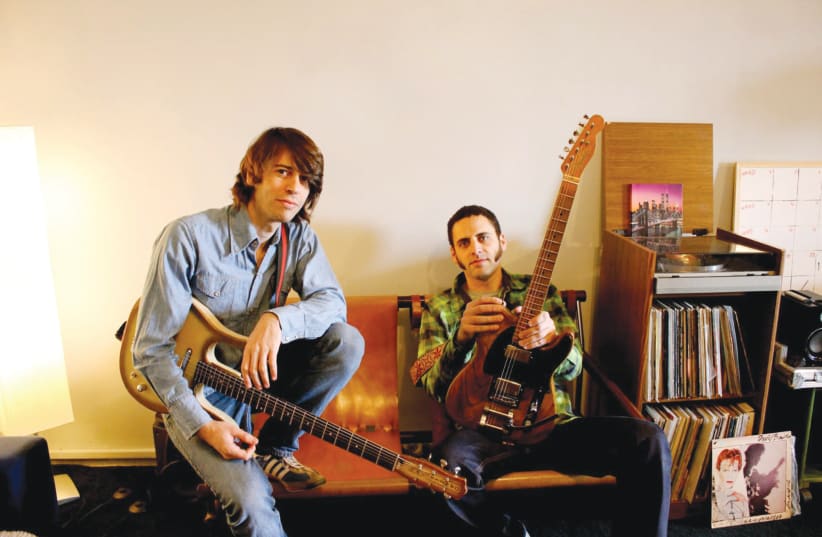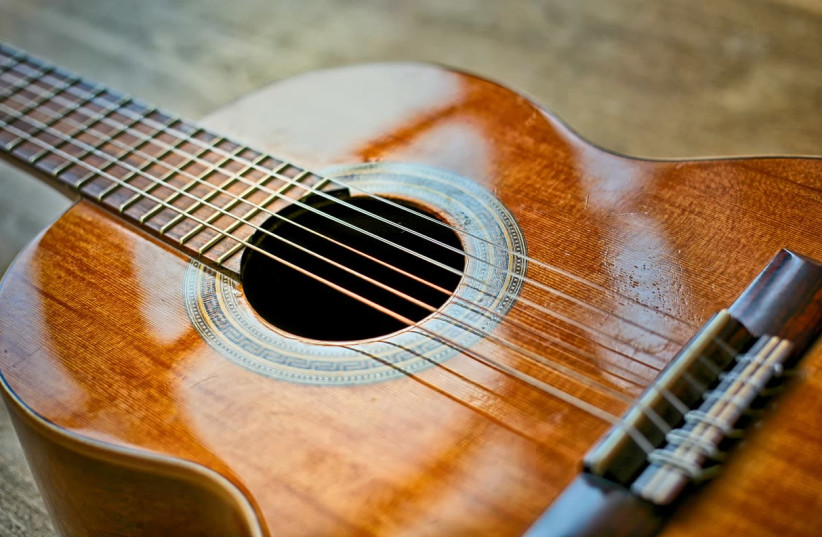Jairo Zavala is a man of many faces – musical faces that is. For starters, he generally goes by his stage sobriquet of Depedro, his principal and largely folk-oriented vehicle of musical expression for the past 14 years. But the fortysomething Spanish guitarist-vocalist has plenty more to his musical baggage, some of which will filter through his gig with local singer-songwriter Geva Alon at the Enav Center in Tel Aviv on December 9.
The show is part of the Hamagber Guitar Festival taking place December 7-10, with nine shows featuring an impressive roster of mostly local artists, with a handful of offshore stars thrown into the mix. The domestic A-lister side of the program includes the likes of Danny Sanderson, Ehud Banai, Hemi Rudner and the psychedelic rock outfit Rockfour. In addition to Zavala, the imports include Florida-based producer DJ Cole; and British musician, record producer and record-label owner Colin Newman, best known as the lead vocalist and songwriter for the post-punk band Wire.
Hamagber is basically a tale of synergies between artists of similar philosophies, with some shows billed as a tribute to a giant of their field, such as Banai honoring the late virtuosic British guitarist and singer-songwriter Michael Chapman; and veteran rockers Rockfour taking on the music of Syd Barrett, who co-founded Pink Floyd in 1965.
Zavala is no stranger to these shores, having made four previous working jaunts here, and has a bit of a track record with Alon too. The Spaniard says they are a good fit, on all sorts of levels. “I admire his music and his sense of humor and his heart. And he was always open and generous to me, showing me a lot of Israeli music, new and old. It is such a privilege, like to travel by the hand of people from the place you visit – locals.”
For Zavala, crisscrossing the globe with his craft is not just a matter of strutting his stuff on some stage or other. He says he tries to take on board as much of the indigenous culture and spirit as he possibly can.
“It is an amazing thing to meet local people. When I travel to Guatemala or to Mexico, I meet my friends and eat with their families, and listen to their thoughts,” he says. “It is not like being a tourist. You get right into things. People are so kind. That’s a gift.”
It is, indeed, a boon that brings Zavala straight into the heart of the local culture, on the basic quotidian street-life level, and also gives him a better understanding of where the music comes from. That’s not just a matter of grasping the technicalities of how the instrumentalists go about their business, but figuring out the source emotions and folklore, handed down across the generations more often than not by word of mouth.
All that globe-trotting and human interaction has left Zavala with an expansive range of sounds and rhythms to feed off, and work into his own output – that and being born at a particular juncture of the commercial musical timeline. Prior to Depedro, he mined his way deep into rich rock seams, primarily as the leader of Vacazul and 3000 Hombres, two of Spain’s top rock bands in the 1990s, which fed off psychedelia, acerbic-sounding punk-oriented rock and covers of Led Zeppelin numbers. He also did a stint with Tucson, Arizona-based Latin-influenced indie rock band Calexico, which included a tour here.
“All of that is in my background,” he says. “I absorbed so many styles. And I love folk. That is an endless source of inspiration for me. Also, I was born in the Seventies, so I grew up listening to classic rock.”
FAMILIAL BAGGAGE also came into the artistic influence equation. “My mum grew up in Africa, so I was listening to central African and western African music. And I also listened to Latin American music because my father came from Peru.”
That certainly broadened the youngster’s sonic horizons. “The Latin community is not just Spain,” he points out. “There are like 500 million people, so there are good traces of South American music in Spain.”
The African side of his musical consciousness was aired for the world to see in a documentary he made in 2014, called Casamance: The Soundtrack of a Journey, in which Zavala traces some of his mother’s youthful steps around Africa, encountering musicians en route, and exploring the local folklore and artistic possibilities the cross-cultural interfaces offered.
All of which informs his work on the Depedro project. “I try to put all of that together into my music. That’s why you hear folk and all sorts of interesting things. And there is bolero music. When you are a kid, you think it is stupid music. You have to live in order to understand what it is about,” Zavala notes, referencing the romantic musical genre that is still highly popular in places like Cuba and Spain. “It is really folk music, which is simple. But they talk about things that are really, really important, and it is so beautiful.”
Zavala says he likes to keep things relatively simple and stay grounded, and get the message across clearly with few airs and graces. “You know they call the music popular because it belongs to the people, the common people. There is nothing more amazing than walking through a park and seeing a kid with a guitar, playing one of my songs.”
It’s about getting it out there and spreading the joy and beauty. “You know, after you finish your song it doesn’t belong to you anymore. We try to get to the heart of the people, and try to make this world a little bit better.”
Indian anti-colonialist and activist Mahatma Gandhi is credited as observing that, if we want to generate change first we have to shift our own mindset. Zavala goes along with that idea, and believes we can sort things out ourselves.
“I have a song on my new album called ‘Dark Night – Noche Oscura.’ You know, you go to meet a friend in a bar, for a beer or a coffee or something, and in 10 minutes you fix the world,” he laughs. “There is a line in the song that goes: ‘Everyone wants change, but no one wants to change.’ We have to do the work too.”
Zavala and Alon have done the work, together, on several occasions before. They have performed and recorded a bunch of numbers in Spanish and English, and there should be plenty of rock, blues and folk vibes, not to mention a strong simpatico feel, in the air at the Enav Center on Friday.
The Depedro-Geva Alon show takes place this Friday at 9 pm. For tickets and more information about the festival: goshow.co.il/pages/minisite/195

